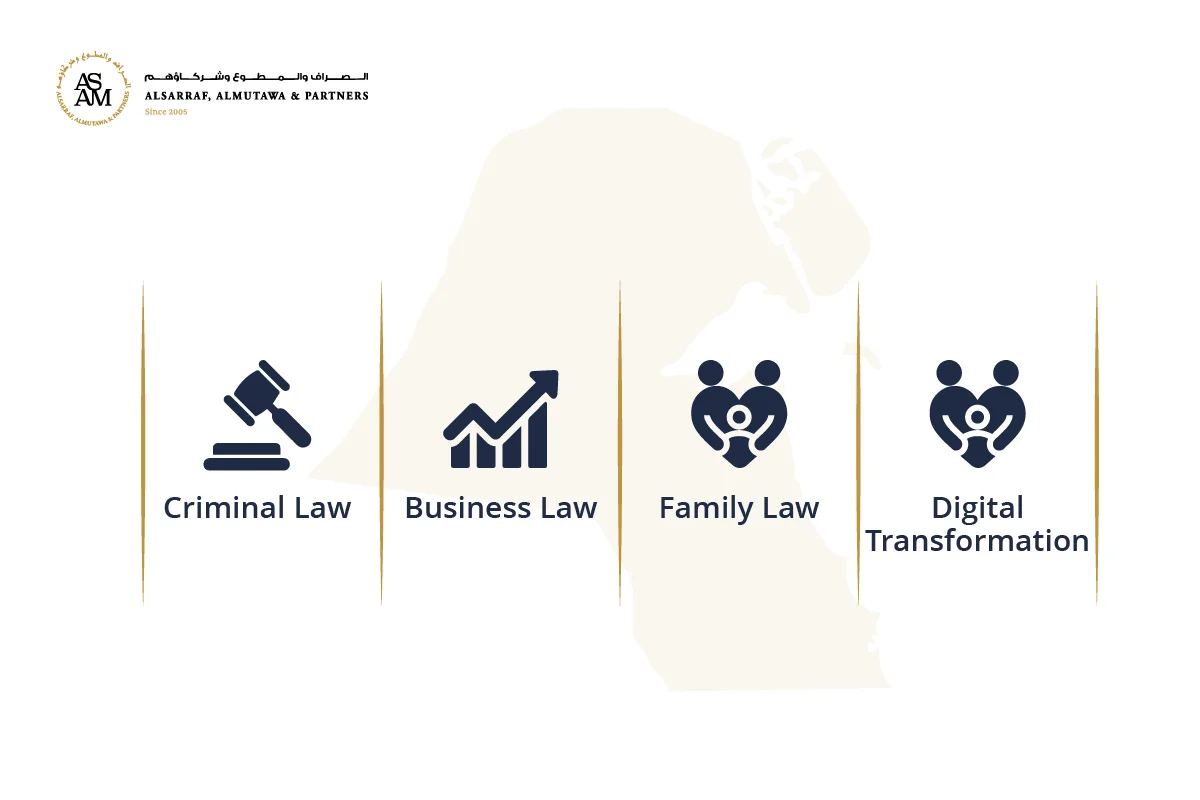

Legal reforms in Kuwait are reshaping how justice is delivered and how attorneys serve their clients. Over the past few years, the Ministry of Justice and the Kuwait Bar Association have pushed forward major updates to the country’s laws, court systems, and legal procedures. These reforms aim to make the judicial system in Kuwait more efficient, transparent, and aligned with international standards.
For lawyers, that means adapting to new licensing rules, digital court processes, and higher ethical requirements. For businesses and clients, it brings clearer laws, faster procedures, and better protection under a modern regulatory framework.
In this blog, we’ll explore how these legal reforms are changing attorney services in Kuwait and what they mean for the country’s evolving legal landscape.
To understand how things are changing, it’s helpful to look at the main shifts as part of legal reforms in Kuwait. Kuwait has launched an ambitious reform program set to review a significant portion of its legal framework over the coming years.
The effort is targeted at bringing the country’s legal architecture up to date, especially in areas like commercial law, criminal procedures, family law, and digital transformation.
At the same time, the legal profession is being reviewed too. The Ministry of Justice and the Bar Association are drafting a new law to raise professional standards, protect lawyers, and set clear rules for fees and representation.

The current 2024-2025 legislative agenda, a key component of Kuwait Vision 2035.
Criminal laws: Amendments to the Penal Code (Law 16/1960) and the Code of Criminal Procedure strengthen due-process rights, introduce digital court notifications, and expand provisions targeting financial crimes.
Together, these measures form the backbone of Kuwait’s 2025 legal reform program.
The regulatory updates in Kuwait are not just about laws but also about how the legal industry is governed.
New rules will require written entrance exams for lawyers, give them better protections during court procedures, make law office registrations public and transparent, and tighten penalties for anyone practicing law without a license.
The Ministry of Justice is reportedly exploring partnerships with major tech firms like Google and Microsoft. The goal is to build online systems for legal documents, court updates, and property registration.
These digital upgrades are also transforming Kuwait’s legal practice areas — from commercial and criminal law to family and real estate cases — bringing greater transparency, consistency, and efficiency to the way legal professionals operate.
The Kuwait Bar Association is a key player in making sure legal reforms actually work in practice. As part of the broader changes in the legal profession in Kuwait, it’s working with the Ministry of Justice to shape the new Lawyers’ Law so it keeps up with new rules and standards.
The Bar is also helping design and guide reform programs, moving from just enforcing rules to actively improving how the system works. As a result, lawyers now have to meet higher standards for governance, accountability, and integrity in their work.
Updates to the commercial law and foreign investment law require businesses to make sure their operations fully follow the new regulations. Companies are being asked to review how they’re managed, including their governance, internal controls, and reporting systems.
The main goal is to improve accountability and protect public funds, in line with Kuwait’s Vision 2035.
Legal service providers now advise clients on how to manage risks arising from these shifts.
Legal services in Kuwait are undergoing significant changes. New rules now cover how lawyers set their fees, how they communicate with clients through digital platforms, and how they follow professional conduct standards. Lawyers also have stronger protections against unfair detention, clearer fee guidelines, and official complaint channels between the Ministry of Justice (Kuwait) and the Bar Association.
These updates make the legal field more stable. Clients can expect greater reliability, while lawyers operate under clearer professional standards.
Foreign investors and expats in Kuwait are seeing real changes in how legal services work.
Reforms to the foreign investment law and the move toward digital legal documentation are making it easier to start a business or get legal help. Reviews of rental laws, commercial courts, and investment rules are part of this broader update.
International companies will need to work with local lawyers who understand the new system, while expats using specialized expat legal services will benefit from clarity and stronger protections.
The legal environment in Kuwait is becoming more open, consistent, and easier for foreign investors to navigate.
The law firm ASAM& Partners keeps a close eye on legal reforms in Kuwait.
ASAM& Partners aligns its legal practice with Kuwait’s new wave of regulatory modernization.
These initiatives reflect Kuwait’s broader shift toward a modern, tech-integrated legal landscape.

Another key part of their work is client education. For instance, when the power-of-attorney laws, electronic transaction laws, or foreign investment law change, they publish guides, hold seminars, and alert clients about how to respond. By doing this, ASAM & Partners helps clients see not only the risks of change but the opportunities that come with a more modern legal system.
The reforms place heavy emphasis on digital transformation in legal services. The judicial system in Kuwait is introducing e-filing, electronic notifications, online registration of real estate, and powers of attorney.
This means faster processes and fewer physical bottlenecks. It also changes how attorneys operate: more online interaction, more remote work, more efficiency.
With the regulatory updates, licensing and ethics for attorneys are being strengthened. The proposed legal profession law includes written entrance exams, professional misconduct oversight, social media standards, and clearer rules on legal fees and representation.
For the end client, this means better-regulated, more accountable legal representation.
Ultimately, both clients and law firms stand to gain. Clients benefit from greater predictability, clear rules, faster services, and more protection. Law firms benefit from clear professional standards, digital tools, and the ability to deliver more effectively. Over time, the legal market in Kuwait becomes more competitive, services become more refined, and the overall user experience improves.
Legal reforms in Kuwait mark a turning point for the country’s justice system. They’re redefining how lawyers work, how businesses comply, and how clients access legal support. With digital systems, stronger professional standards, and clearer laws, Kuwait is moving toward a legal system that works faster and holds everyone to higher standards.
ASAM & Partners guides clients through every change, translating new regulations into real-world strategy. Whether you’re a business, investor, or individual, understanding these reforms isn’t just about compliance; it’s about staying ready for the way law now works in Kuwait.
What Are the Main Goals of Kuwait’s Recent Legal Reforms?
Kuwait’s legal reforms focus on making the justice system faster and more transparent. They’re modernizing court procedures, raising standards for lawyers, and adopting digital legal processes to align with global norms.
How Will the New Regulations Affect Attorneys in Kuwait?
Attorneys will face new licensing exams, regulatory oversight, digital tools for practice, clearer fee regulations, and mandatory professional conduct rules.
Do These Reforms Impact Foreign Investors and Expatriates?
Yes. With updated foreign investment law, streamlined digital services, and commercial court reforms, foreign investors and expats will find more efficient and transparent legal processes.
What Is the Role of the Kuwait Bar Association in These Reforms?
The Bar Association works closely with the Ministry of Justice to draft the legal profession law, shape professional standards, and implement regulatory modernization.
How Does Digitalization Play Into the Legal Services Reforms?
Digitalization is central: e-filing, online notifications, electronic registration, and cloud-based document handling are all part of the reform plan. This changes how services are delivered.